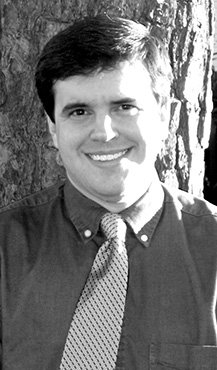Persistence and curiosity make the great moments in history. The persistence of Dr. Samuel Busey led to the discovery of oil in South Arkansas, beginning an economic revolution for the region, one that has now hit the century mark.
Samuel Thompson Busey was born in rural Illinois in 1867 into a farming family. His family was active in the community, and one uncle served as a Union general during the Civil War. He began studying medicine as a youth, hoping to follow in the footsteps of his grandfather, also a physician.
Curiosity led Busey to also study geology and tour the world. In the 1890s, he traveled extensively in Central America and South America before establishing a successful medical practice in Mexico. He became increasingly interested in oil as it started becoming more widely used as a fuel source.
In 1901, he traveled to Southeast Texas to witness the famed Spindletop Well that had just been completed, ushering in the age of oil for Texas. Inspired by this visit, he and a group of investors began drilling for oil in Mexico. The results were not impressive, and with revolution erupting in Mexico in 1910, Busey left for Bolivia. By 1915, he managed to complete a successful well. He returned to the United States with hopes of repeating his successes, living in Oklahoma and Louisiana as he continuing his search for oil.
By the 1910s, geologists had suspected for some time that oil was present in Union County. Test holes were dug in Urbana and near the Columbia County line by mid-decade, but no oil had been found. In 1920, some oil was discovered in Stephens in neighboring Ouachita County by Samuel S. Hunter, but it was not enough to make a profit. Soon afterward, drilling just east of El Dorado uncovered a huge natural gas deposit.
At the time of the gas discovery, Busey was only 40 miles away in Homer, Louisiana, and rode to El Dorado to learn more about the find. Convinced that a major discovery was imminent, he decided to stay. However, the local hotel, the Arcade, was booked solid, so he paid $2,500 (or $32,500 in 2021 dollars) to buy the hotel outright.
In the meantime, investors on the southwest side of town were attempting to drill for oil on the farm of David Armstrong. After drilling 1,700 feet, the investors had lost their money and given up. In November, Busey stepped in and took over the project, taking a 51% stake in the project and buying the farm.
Drilling resumed another 500 feet deeper into the Earth. On January 10, 1921, at 4:30 p.m., oil was struck at the Busey’s Discovery Well. Oil erupted to the surface with volcanic strength, spraying oil for a mile in every direction. Some local housewives complained that the laundry they had hung out to dry was ruined in the process.
Busey made a fortune overnight. Immediately, a special train filled with legislators left Little Rock for El Dorado to explore the new find. Investors flooded the area trying to stake their own claims. Within weeks, 22 trains daily came from Shreveport and Little Rock to El Dorado and even daily flights took place between Shreveport and El Dorado. El Dorado’s population surged from just over 4,000 to more than 30,000 within just a few years – briefly making it the second-largest city in the state.
Busey soon sold the hotel for $5,000 and received hundreds of offers for the well. He soon expanded his drilling operations in Union County. An attempt to find oil near Monticello failed, but he was successful in finding another well in Mississippi.
By 1928, Busey hailed as the man behind the boom, sold all of his oil holdings in Union County as the Oil Boom started to die down. El Dorado continued to be the heart of oil country in South Arkansas, with deposits eventually found in the ten southernmost counties of the state. Today, oil is still the most important and profitable industry in the region – all from Busey’s persistence in 1921.
He once explained that he was fascinated by challenges.
“I was always a great hand to deal in junk. When others give up a well I like to take hold and see what I can do,” said Busey in a 1941 interview.
Busey died at his home in Maryland in 1962.
Dr. Ken Bridges is a professor of history and geography at South Arkansas Community College in El Dorado and a resident historian for the South Arkansas Historical Preservation Society. Bridges can be reached by email at kbridges@ southark.edu.
